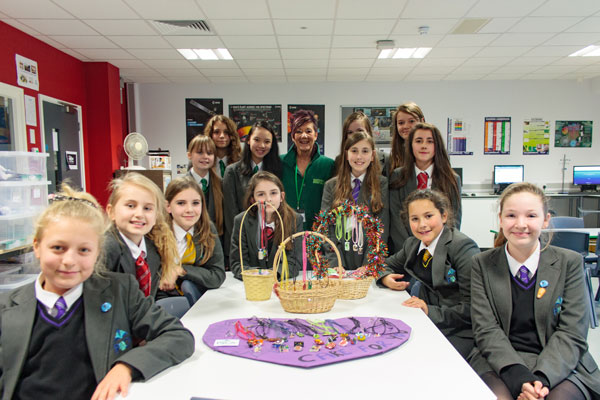Science: Unlocking Potential

Dr Caroline Oprandi keeping you up to date with science & technology at PACA
I recently wrote an article for the best practice section of the magazine Secondary Education. I read through some of the other related articles and this one, written by Sir Mike Griffiths, I had to share: ‘To succeed with STEM; teachers must control the curriculum’. Sir Mike Griffiths says that if we are to attract enough outstanding people into STEM teaching and also inspire students to embrace these subjects, we must take control of the curriculum and support our teachers’ development. He goes onto say:
“Increasingly accountability measures (Ofsted, EBacc) are being used to drive the curriculum and its delivery. This must stop. We must get away from perverse incentives that see schools offering a curriculum to suit a league table rather than our children. Politicians must step back from the curriculum. It is not their place to determine what should be taught and how, any more than it is their place to tell surgeons what operation is needed and how to perform it.
“But it is not only elected politicians who seek to influence the “way” we do things. There are educationalists who muddy the waters too. An example: science is a way of looking at the world and seeking an understanding of just how things work. It generates hypotheses and then – and this is the uniqueness and beauty of science – tests those hypotheses until the idea is adopted as an accepted view (albeit one that might change in the future given new ideas and new evidence). The very essence of science is the practical work employed to test hypotheses. But the exams regulator, Ofqual, has determined that the marks for practical assessment will form no part of the examination grade for the subject (effectively because teachers cannot be trusted to assess practical skills fairly).
“The very essence of science is the practical work”
“‘Investigations’ inspire many youngsters; it is what first excites them. It makes them want to study more. It is practical work that stimulates them to become the scientists – and science teachers – of the future.
“Teachers have become compliant. We need to do what is right, not what we are told. The curriculum is too important to be left to those with alternative agendas. If we are to have a good supply of STEM teachers in the future, education professionals must be the ones to determine the nature of the curriculum. And if assessing investigative skills is difficult, we need to find ways to make it reliable and robust. Surely not beyond us?”
Portslade Aldridge Community Academy (PACA) is a college offering sixth form, 11-16 years, youth centre, adult learning, community education, sports centre and pre-school. Find out more at www.paca.uk.com





















